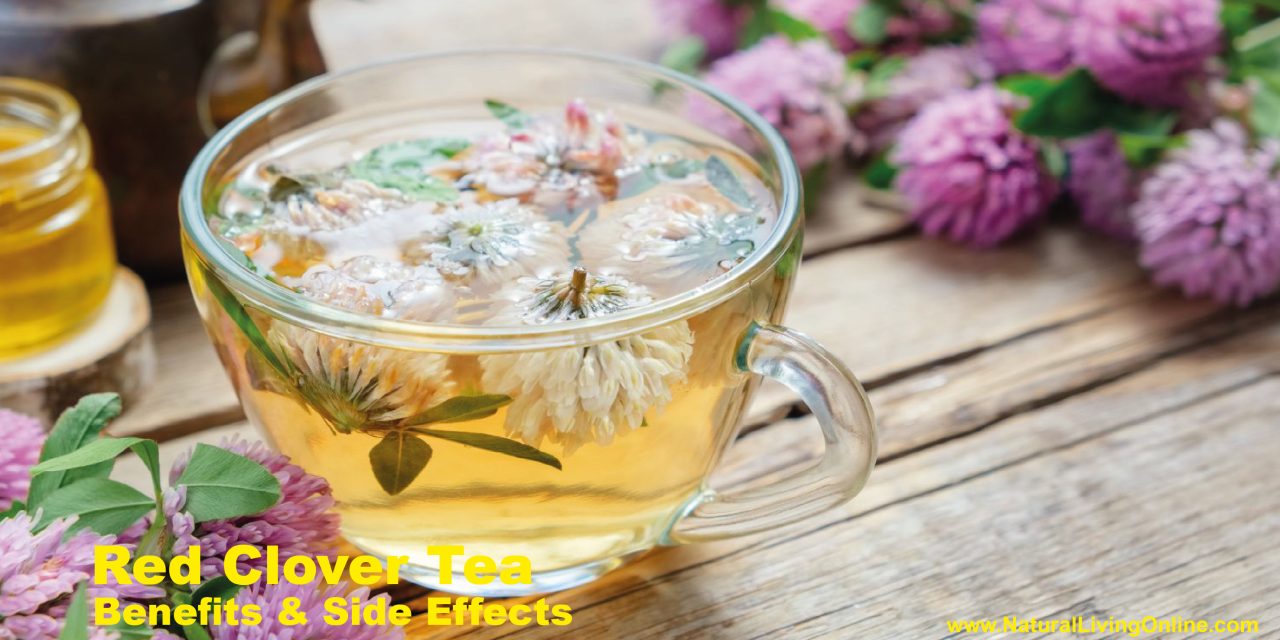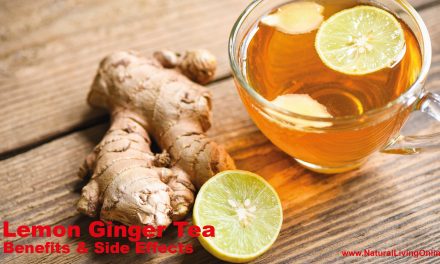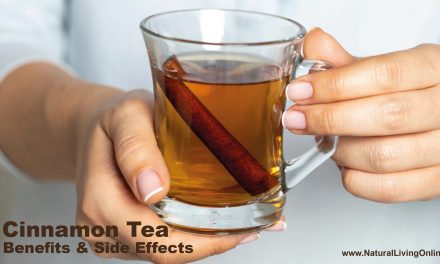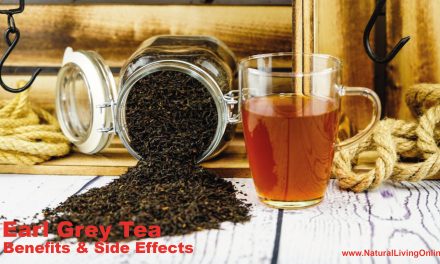Red clover tea is a herbal drink made from the flowers of the red clover plant. This aromatic beverage has been used for centuries in traditional medicine for its potential health benefits. Red clover tea may help with menopause symptoms, bone health, and heart health.
The tea contains compounds called isoflavones, which have estrogen-like effects in the body. These plant-based chemicals are thought to be responsible for many of the potential benefits associated with red clover tea. Some people drink it to ease hot flashes, improve bone density, or lower cholesterol levels.
While red clover tea shows promise, it’s important to note that more research is needed to fully understand its effects. Like any herbal remedy, it may also have side effects or interact with certain medications. It’s always best to talk to a healthcare provider before adding red clover tea to your diet, especially if you have any health conditions or take other medications.
Key Takeaways
- Red clover tea contains isoflavones that may offer health benefits
- The tea is often used for menopause symptoms and heart health
- Consult a healthcare provider before using red clover tea regularly
Botanical Profile and History
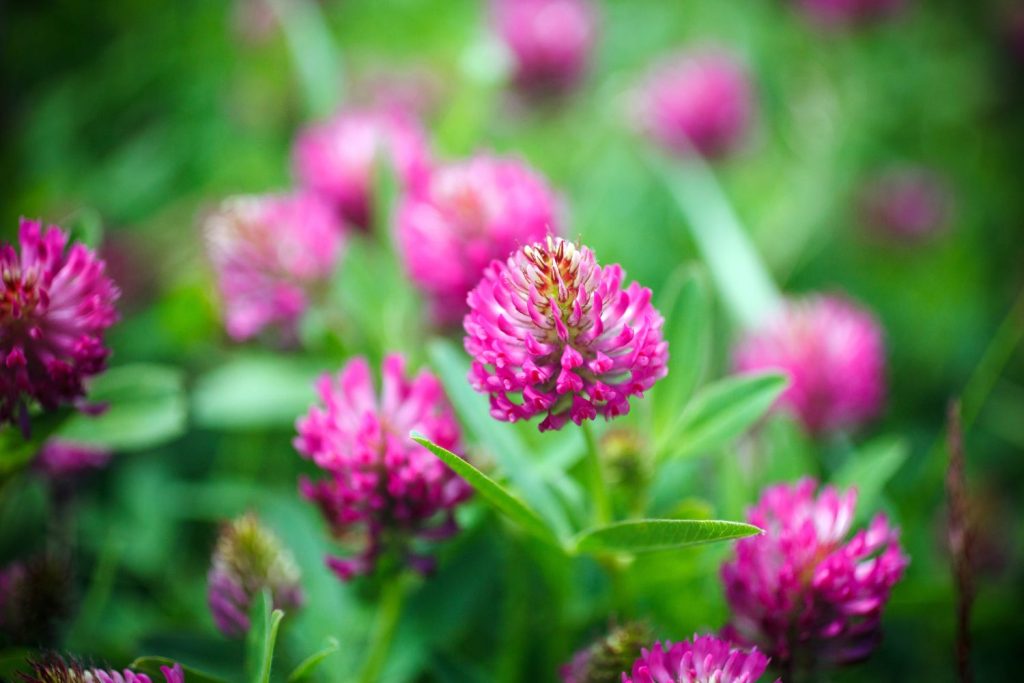
Red clover is a flowering plant with a rich history of use across continents. Its botanical characteristics and cultivation practices have made it a valuable herb in many cultures.
Origins and Cultivation
Red clover, known scientifically as Trifolium pratense, is native to Europe, Asia, and parts of Africa. It grows wild in meadows and fields. Farmers also grow it as a crop for livestock feed and to improve soil health.
The plant thrives in cool, moist climates with well-drained soil. It can grow up to 2 feet tall. Red clover spreads easily and often pops up in pastures and along roadsides.
People have used red clover for centuries. Traditional healers prized it for its healing properties. Today, it’s still popular as an herbal remedy and nutritious food source.
Botanical Characteristics
Red clover belongs to the legume family. It has a distinct appearance that makes it easy to spot in the wild.
Key features of red clover include:
- Leaves: Divided into three leaflets, often with a white V-shaped marking
- Flowers: Pink to purple, globe-shaped clusters
- Stem: Hairy and branched
- Root: Deep taproot system
The plant blooms from spring to fall. Its flowers attract bees and other pollinators. Red clover can live for 2-3 years under good conditions.
Each flower cluster contains up to 125 small florets. These turn into seed pods after pollination. The seeds can stay viable in soil for years.
Health Benefits of Red Clover Tea
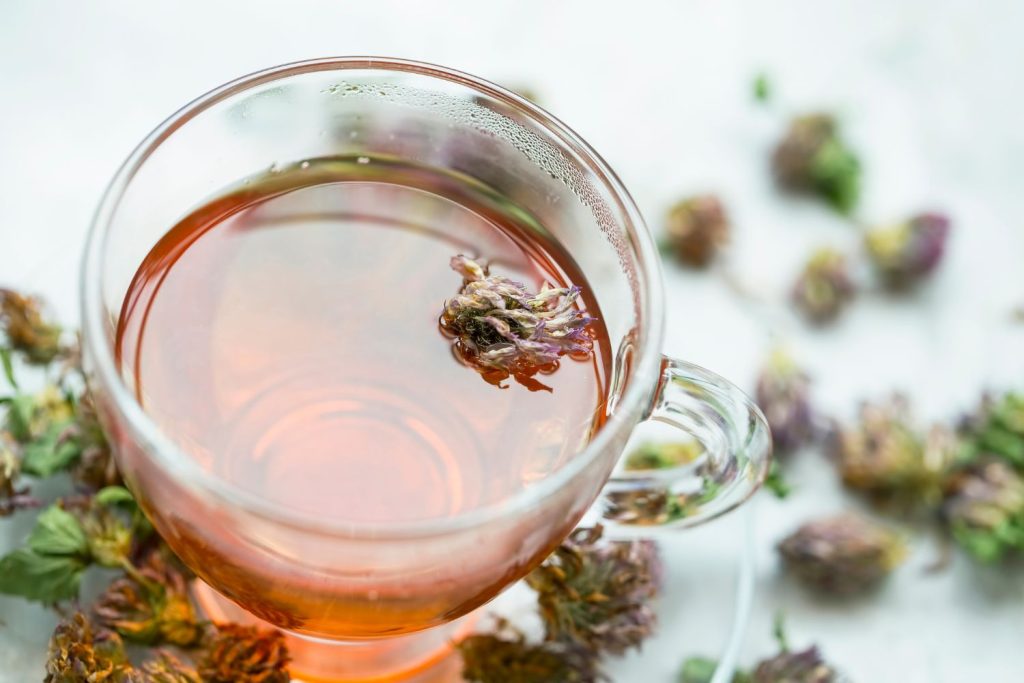
Red clover tea offers several potential health benefits. This herbal beverage contains compounds that may help with menopause symptoms, bone health, heart wellness, and skin conditions.
Menopause Relief
Red clover tea contains isoflavones, which are plant-based compounds that act like estrogen in the body. These phytoestrogens may help ease menopausal symptoms.
Women going through menopause often experience hot flashes, night sweats, and mood changes. Drinking red clover tea might reduce the frequency and intensity of these symptoms.
Some studies suggest that red clover supplements can decrease hot flashes by up to 30-40%. While more research is needed, many women find relief from menopausal discomfort by including red clover tea in their diet.
Bone Density Support
Maintaining strong bones becomes crucial as people age, especially for postmenopausal women. Red clover tea may help support bone health.
The isoflavones in red clover have been linked to improved bone density. These compounds might slow bone loss and reduce the risk of osteoporosis.
Some research indicates that red clover supplements can increase bone mineral density in menopausal women. While tea may not be as concentrated as supplements, regular consumption could still provide benefits for bone health.
Cardiovascular Wellness
Red clover tea may contribute to heart health in several ways. Its isoflavones might help improve cholesterol levels and overall cardiovascular function.
Studies have shown that red clover can increase HDL (good) cholesterol while lowering LDL (bad) cholesterol. This balance is important for heart health and may reduce the risk of heart disease.
The tea also contains antioxidants that protect blood vessels from damage. These compounds may help improve blood flow and reduce the risk of blood clots.
Skin Health Improvement
Red clover tea might benefit skin health due to its anti-inflammatory properties. The isoflavones and other compounds in red clover can help soothe skin irritations.
Some people use red clover tea to treat skin conditions like eczema or psoriasis. The tea’s antioxidants may also protect skin from damage caused by free radicals and aging.
Drinking the tea or applying it topically might improve skin elasticity and reduce the appearance of wrinkles. However, more research is needed to fully understand its effects on skin health.
Nutritional Composition
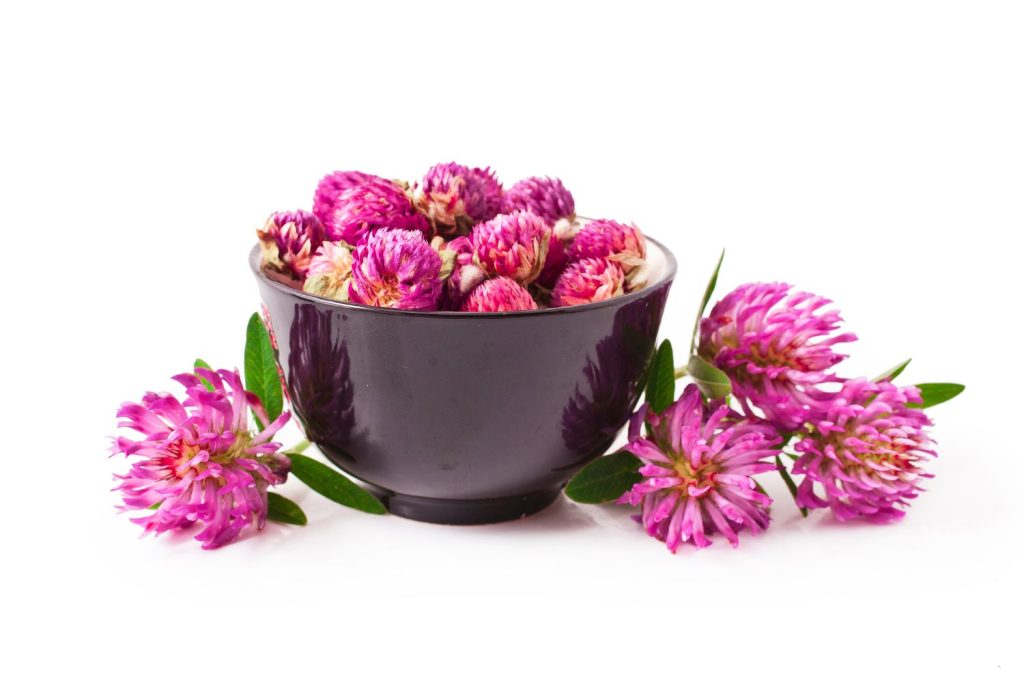
Red clover tea contains many beneficial nutrients and compounds. These include vitamins, minerals, and unique plant chemicals that may support health.
Vitamins and Minerals
Red clover tea provides several important vitamins and minerals. It contains vitamin C, which supports immune function and skin health. The tea also offers calcium and magnesium, two minerals crucial for bone health.
Potassium is another key mineral found in red clover tea. This electrolyte helps regulate blood pressure and fluid balance in the body.
The exact amounts of these nutrients can vary based on growing conditions and preparation methods. However, red clover tea generally provides a good mix of essential vitamins and minerals in each cup.
Phytochemicals
Red clover tea is rich in beneficial plant compounds called phytochemicals. The most notable are isoflavones, a type of antioxidant.
Key isoflavones in red clover include:
- Biochanin A
- Formononetin
- Genistein
These compounds may help protect cells from damage and reduce inflammation in the body. Isoflavones are also known as phytoestrogens, as they can mimic some effects of estrogen.
Red clover tea contains other antioxidants as well. These help neutralize harmful free radicals and may support overall health.
Potential Risks and Side Effects
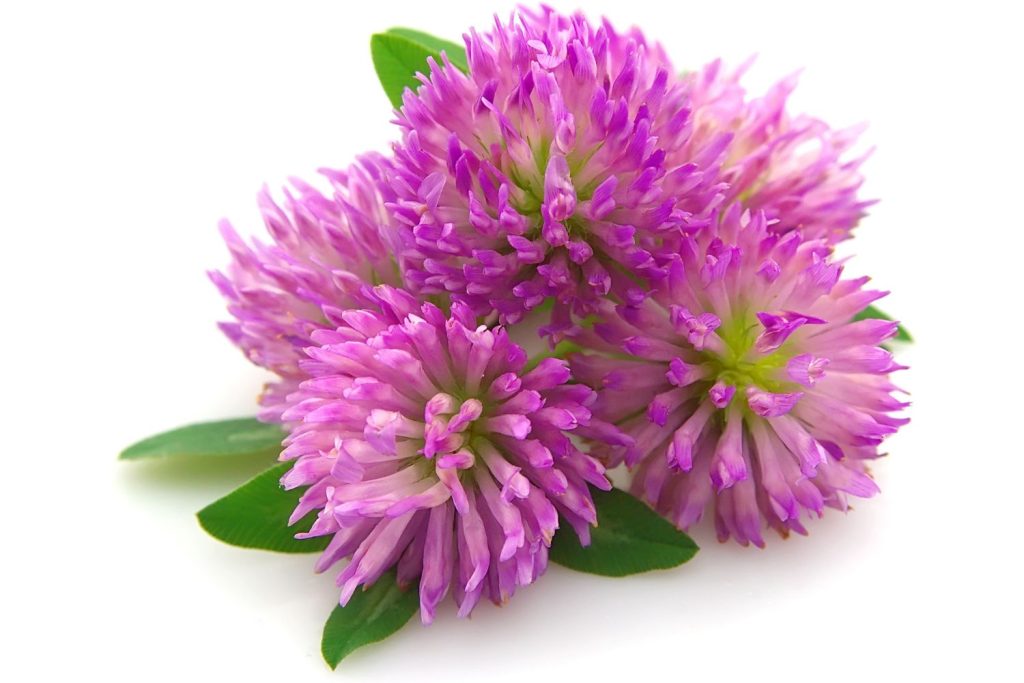
Red clover tea may cause unwanted effects in some people. It can interact with hormones and medicines. It’s important to know the risks before drinking this tea.
Hormone Interaction Concerns
Red clover contains plant compounds similar to estrogen. This can affect hormone levels in the body. Women with hormone-sensitive conditions should be careful. These conditions include:
- Breast cancer
- Uterine cancer
- Ovarian cancer
- Endometriosis
- Uterine fibroids
Pregnant women should avoid red clover tea. The effects on pregnancy are not well-studied. Men may experience changes in hormone levels too. This could lead to fertility issues or mood changes.
Medicinal Conflicts
Red clover can interfere with some medications. People taking blood thinners should be extra cautious. Red clover may increase the risk of bleeding.
Other medications that may interact with red clover include:
- Birth control pills
- Hormone replacement therapy
- Some cancer treatments
- Drugs that affect liver enzymes
It’s crucial to talk to a doctor before drinking red clover tea if on any medication.
Guidelines for Safe Consumption
To drink red clover tea safely:
- Start with small amounts to test for reactions.
- Don’t drink it every day for long periods.
- Stop use at least two weeks before any planned surgery.
People with bleeding disorders should avoid red clover. Breastfeeding mothers should also be cautious. The effects on infants are unknown.
Always check with a healthcare provider before using red clover tea. This is especially important for people with existing health conditions or those taking medications.
How to Use Red Clover Tea
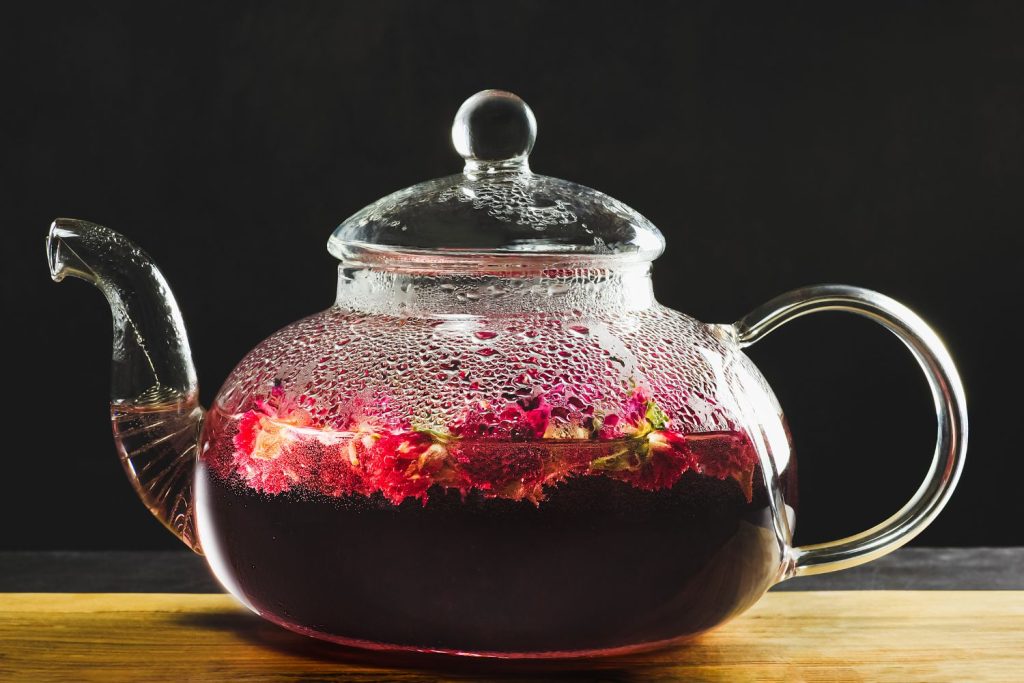
Red clover tea offers many ways to enjoy its benefits. There are different forms and dosages to choose from, as well as simple brewing methods.
Preparing the Tea
To make red clover tea, start with dried red clover flowers. Use 1-2 teaspoons of dried flowers per cup of hot water. Pour boiling water over the flowers and let steep for 10-15 minutes.
Strain out the flowers before drinking. The tea has a mild, sweet flavor. You can add honey or lemon if desired.
For a stronger brew, use more flowers or steep longer. Cold brewing is another option. Add flowers to cold water and refrigerate overnight.
Red clover tea bags are also available for convenience. Simply steep one tea bag per cup of hot water.
Supplement Forms
Red clover supplements come in several forms:
- Capsules
- Liquid extracts
- Tinctures
- Tablets
Capsules are a popular choice for easy dosing. Liquid extracts can be added to water or juice. Tinctures are concentrated and taken by dropper.
Some supplements combine red clover with other herbs. Check labels for exact contents and dosage instructions.
Recommended Dosages
Typical daily doses of red clover supplements:
- Tea: 1-3 cups
- Capsules: 40-160 mg of isoflavones
- Liquid extract: 1-2 mL, 3 times daily
- Tincture: 60-100 drops, 3 times daily
Start with lower doses and increase slowly. Talk to a doctor before use, especially if pregnant, nursing, or taking medications.
Children, older adults, and those with health conditions may need lower doses. Stop use if any side effects occur.
Frequently Asked Questions
What are the potential benefits of red clover for women’s health?
Red clover contains compounds called isoflavones that may help reduce menopausal symptoms like hot flashes and night sweats. It could also support bone health in postmenopausal women. Some studies suggest red clover may lower the risk of certain cancers in women. More research is needed to confirm these effects.
Could consuming red clover tea lead to any adverse effects?
Red clover tea is generally safe for most people when consumed in moderation. However, it may cause headaches, nausea, or rashes in some individuals. People taking blood thinners should be cautious, as red clover may increase bleeding risk. Those with hormone-sensitive conditions should consult a doctor before use.
In what ways can red clover be beneficial for the skin?
Red clover contains antioxidants that may protect skin from damage. It could help improve skin elasticity and reduce the appearance of wrinkles. Applying red clover topically may help with skin conditions like eczema and psoriasis. Its anti-inflammatory properties could soothe irritated skin.
Does incorporating red clover into one’s diet influence hormone levels?
Red clover contains phytoestrogens, which are plant compounds similar to estrogen. These may have mild estrogenic effects in the body. For some women, this could help balance hormone levels during menopause. However, the effects can vary between individuals.
Can red clover tea have a role in supporting fertility?
Some believe red clover may support fertility due to its phytoestrogen content. However, scientific evidence for this is limited. Red clover might improve uterine health, which could potentially benefit fertility. More research is needed to confirm its effects on human fertility.
Are there any specific demographics that should avoid drinking red clover tea?
Pregnant and breastfeeding women should avoid red clover tea due to its hormonal effects. Children should also not consume it regularly. People with breast, ovarian, or uterine cancer should consult a doctor before using red clover. Those with bleeding disorders or scheduled for surgery should also avoid it.
References:
Pharmacological and therapeutic properties of the Red Clover (Trifo- lium pratense L.): an overview of the new findings
This website does not provide medical advice.
All information provided on this website, and on associated social media networks, including but not limited to texts, images, and numbers are for general information purpose only. It is not intended as medical advice and it does not include all possible precautions, side effects, or interactions that may occur. Neither NaturalLivingOnline.com nor its author/founder take responsibility for how you use this information. Statements contained on NaturalLivingOnline.com have not been evaluated by the FDA. You should conduct thorough research via multiple sources and consult your physician or qualified doctor before using any essential oil or herbal remedy. Information on NaturalLivingOnline.com must not be relied upon for medical, legal, financial or other decisions.

